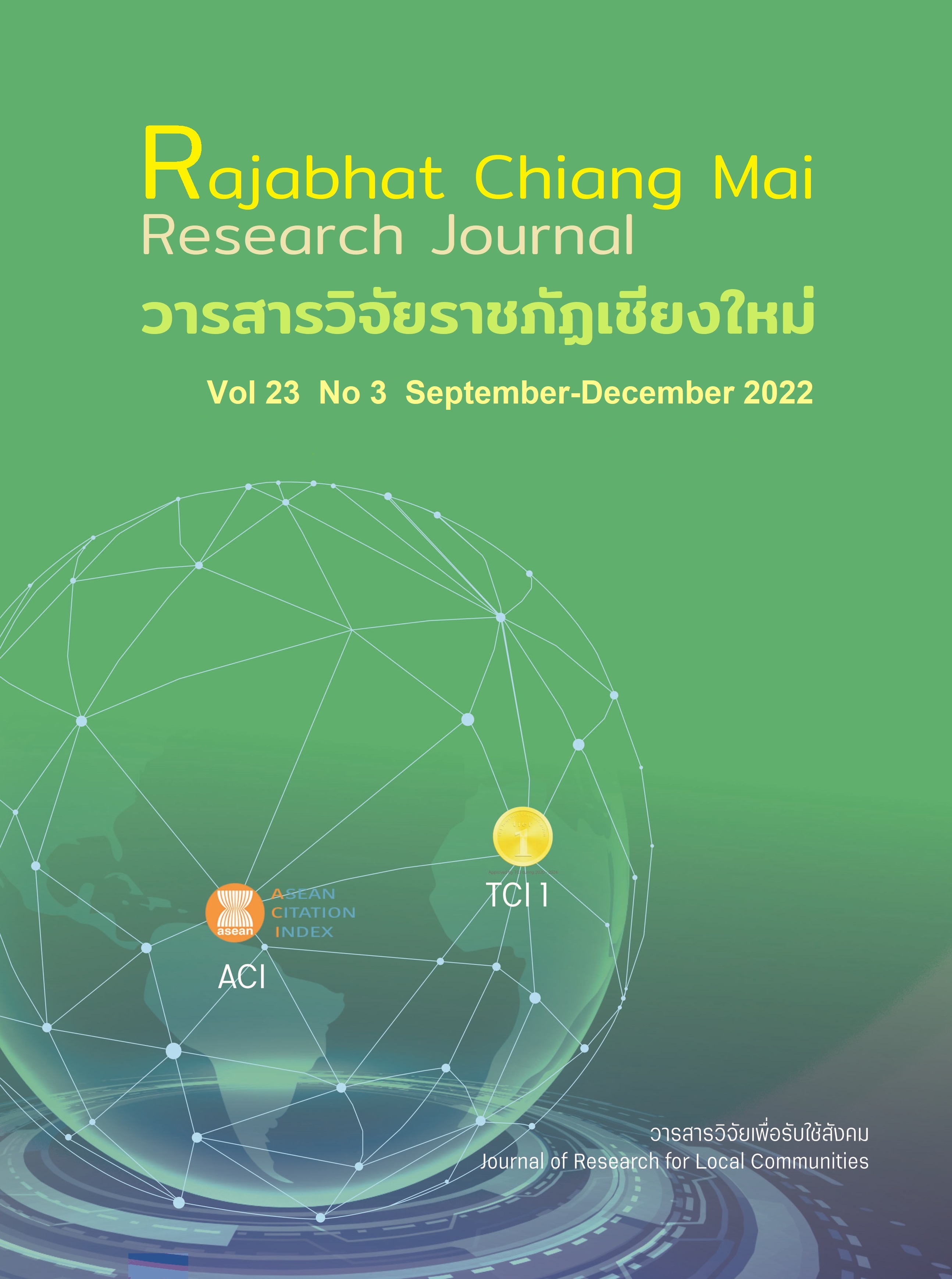A Study of the Condition of Morality and Ethics as a Teacher in the 21st Century and the Public Mind of Student Teachers
DOI:
https://doi.org/10.57260/rcmrj.2022.261328Keywords:
Condition study, Morality and ethics, Public mindAbstract
The purpose of this survey research was to learn more about public attitudes of student teachers as well as the morals and ethics of instructors in the twenty-first century. There is 160 second-year students in the population and 115 of them make up the sample group. The method involves looking at morality, twenty-first-century teaching ethics, and public opinion. Questionnaires that were examined by frequency distribution, percentage, and mean ( ) were the instruments utilized to gather the data, as well as and standard deviation (S.D.). The results of a study on the condition of morality and ethics of teachers in the 21st century and the public mind of student teachers from the questionnaire, it was found that the basic information of the respondents when classified by gender, in this regard 36.52% were males, and 63.48% were females. In this regard, 56.53% were in English, and 43.47% were in early childhood education. As for the experience of self-improvement in moral, ethical and public mind development, 17.40 percent of students had participated in the activities, and 82.60 percent had never participated. It was found that the student-teacher's morality and ethics of being a teacher in the 21st century and the overall public mind of student teachers were at a moderate level (
= 3.40, S.D =. 0.75).
Downloads
References
Bandura, A. (1997). Self – efficacy : The exercise of control. New York: W.H. Freeman and company.
Charoenwongsak, K. (2003). Arayawitheetas: The Value of Humanity. Bangkok: Success Media. (In Thai)
Cronbach, L. J. (1970). Essentials of Psychological Test (5th ed.). New York: Harper Collins.
Good, C.V. (1973). Dictionary of Education. (3rd ed.). New York: McGraw Hill.
Khammanee, T. (2002). Pedagogical science: knowledge for organizing the learning process. effective. Bangkok: Chulalongkorn University. (In Thai)
Krejcie, R. V., & Danyle W. M. (1970). “Determining Sample Size for Research Activities”. Educational and Psychological Measurement, 30(6), 607-610. https://doi.org/10.1177/001316447003000308
Langka, W. (2017). The Future of Thai Teacher Characteristics in the Next Decade (2017-2026). Educational Research Journal Faculty of Education Srinakharinwirot University, 11(1), 36-50. https://ejournals.swu.ac.th/index.php/jre/article/view/8589/7510 (In Thai)
Likert, R. (1967). The Method of Constructing and Attitude Scale. Reading in Attitude. Theory and Measurement.
Maker, C. J.,& Neilson, A. B. (1995). Teaching Models in Education of the Gifted. (2nd ed.). Texas: PRO-ED, Inc.
Ocharos, S. (2017). Ethical Reinforcement Model. Code of Conduct for Police Professionals for Police Sergeants. Bangkok: Royal Thai Police. (In Thai)
Office of the Secretariat of the Teachers Council of Thailand. (2005). Educational Teacher Professional Standards. Bangkok: Teachers Council of Thailand Ladprao Printing House. (In Thai)
Office of the Secretariat of the Teachers Council of Thailand. (2006). Manual of Educational Professional Practice. Bangkok: Teachers Council of Thailand Printing House.
Panjan, W. (2021). Morality and Ethics Development Model under National Standards for Higher Education. Psychology and Education, 58(2), 10627-10636. http://psychologyandeducation.net/pae/index.php/pae/article/view/4039 (In Thai)
Prepool, D. (2019). Ethical Development of Teacher Practitioners under Kalasin Primary Educational Service Area Office 1. (Doctor of Philosophy Program, Program in Buddhism, Graduate School, Mahachulalongkornrajavidyalaya University.) (In Thai)
Secretariat Office of the Teachers Council of Thailand. (2006). Teacher Professional Ethics 2005. The Secretary General of the Teachers Council of Thailand is in command, Secretariat Office of the Teachers Council of Thailand. (In Thai)
Sinlarat, P. (2000). Higher Education and Thai Society. Bangkok: Department of Higher Education, Faculty of Education, Chulalongkorn University. (In Thai)
Sinlarat, P. (2017). Teaching Strategies according to the Qualifications Framework for Higher Education. (2nd ed.). Bangkok: Printing House of Chulalongkorn University. (In Thai)
Thongdee, W. (2001). Moral ethics for teachers. Bangkok: Teachers Council of Thailand Ladprao Printing House. (In Thai)
Downloads
Published
How to Cite
Issue
Section
License
Copyright (c) 2022 Rajabhat Chiang Mai Research Journal

This work is licensed under a Creative Commons Attribution-NonCommercial-NoDerivatives 4.0 International License.
1. Articles, information, content, images, etc published in the “Community and Social Development Journal” are copyrighted by the Community and Social Development Journal, Chiang Mai Rajabhat University. In order to properly distribute the articles through print and electronic media, the authors still hold the copyright for the published articles under the Creative Commons Attribution (CC BY) license, which allows the re-distribution of the articles in other sources. References must be made to the articles in the journal. The authors are responsible for requesting permission to reproduce copyrighted content from other sources.
2. The content of the articles appearing in the journal is the direct responsibility of the article authors. The editorial board of the journal does not necessarily agree with or share any responsibility.














